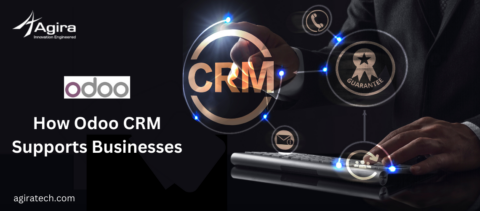
How to choose a CRM?
Did you know that nearly a quarter of salespeople are still in the dark about what exactly a CRM system is?
Investing in Customer Relationship Management (CRM) software is a big decision for any business. With so many options available, it’s crucial to understand the features and capabilities of each to make the right choice.
In this blog, we’ll break down the key considerations to simplify your decision-making process and ensure you choose the CRM software that best suits your business needs.
But before we start discussing on how to choose a CRM let’s understand why your business needs an CRM
Why does your business needs a CRM or customer relationship management?
CRM solutions are customized to meet the needs of businesses of all sizes and financial capacities. Regardless of whether your company is just starting or has been around for years, implementing the right CRM system can bring significant advantages.
For new businesses, investing in CRM might seem unnecessary at first glance. However, relying solely on spreadsheets for managing leads and customer interactions proves inadequate in the long term. A robust CRM tool offers an effective solution to regulate lead conversion and enhance customer relationships.
On the other hand, established companies would be remiss not to integrate CRM into their operations. If your sales team is encountering efficiency issues or challenges, CRM can provide invaluable assistance.
Here are five compelling reasons why your business should invest in a CRM system:
1. Streamline your sales processes
2. Centralize your customer information
3. Encourage better collaboration among departments
4. Simplify and optimize customer interactions
5. Customize your dashboards and track metrics in real-time
How to choose a CRM? Factors to consider before investing in a CRM

What do you need from the CRM?
Before committing to CRM software, it’s crucial to assess the needs and expectations of your business and sales team. Evaluate your current management tools, focusing on lead management, marketing automation, and customer data. List the pros and cons of your current system and identify areas for improvement.
When selecting the right CRM, consider solutions that complement your existing system. Avoid overly complicated platforms, as they can be more burdensome than beneficial. Prioritize simplicity and cost-effectiveness to ensure a smooth transition and maximize the benefits of your new CRM tools.
Scalability of the CRM
Accessibility and scalability are crucial aspects to ponder while selecting a CRM system. User convenience is paramount, and a robust CRM tool should offer multi-platform accessibility and cloud compatibility.
Having such a CRM ensures that users can access the system anytime, anywhere, while also reducing overhead costs compared to on-premises solutions. Some CRM providers even offer cloud access via smartphones and other smart devices, enhancing connectivity and driving business productivity and efficiency.
Seamless integration with existing systems
Transitioning to a new system can be challenging, which is why finding a CRM that aligns with or enhances your current setup is crucial. Opt for a software solution that offers easy integration with various applications like Microsoft Outlook, Sage accounting software, and Google applications. This ensures a smooth transition for your team and minimizes disruptions.
Effortless data import/export
Effective CRM solutions streamline the management of customer information and databases. Ensure that the CRM you choose supports seamless importing of data from spreadsheets, business cards, and other sources. Likewise, easy export functionality to common formats like Excel or .CSV is essential for efficient data sharing and analysis.
How easy is it to learn?
Even the simplest programs may require some learning curve. Consider the time and resources required for your team to learn the CRM system. Look for options with intuitive user interfaces and accessible training resources to maximize user adoption. A well-trained team can fully utilize the CRM’s features, optimizing its value across your organization.

Sales & marketing report
CRM integrations are essential for obtaining a comprehensive view of sales and marketing processes. Seamless connectivity and ERP integration are crucial for cost-effectiveness and efficiency, allowing seamless synchronization with social media and third-party software.
Support
Effective support services are essential for any software solution. Most CRM providers offer support teams and certified developers to address any issues promptly, ensuring smooth operation and minimal disruptions.
Ensuring GDPR compliance
Selecting a CRM solution that complies with GDPR is essential. The GDPR (General Data Protection Regulation) is a law in the European Union that governs the collection, storage, and usage of personal data by businesses. It mandates organizations to safeguard the personal data and privacy of EU citizens, granting individuals greater control over their data.
When choosing a CRM, ensure it aligns with GDPR requirements, especially if conducting business in Europe or serving European customers. Compliance is mandatory for companies with operations, customers, or data collection activities in the EU. Non-compliance can lead to significant penalties, including fines of up to 4% of an organization’s revenue.
60-second summary
Looking to invest in a CRM? Here’s a quick rundown: CRM software is essential for businesses of all sizes. New companies benefit from better lead management, while established ones can improve efficiency.
Five key reasons to invest: Streamlining sales, centralizing customer data, enhancing collaboration, optimizing interactions, and customizable dashboards.
Factors to consider: Assess your needs, prioritize scalability, seamless integration with existing systems, easy data import/export, user-friendliness, comprehensive sales & marketing reports, reliable support, and GDPR compliance if dealing with EU data. Make an informed decision for smoother operations and growth!










